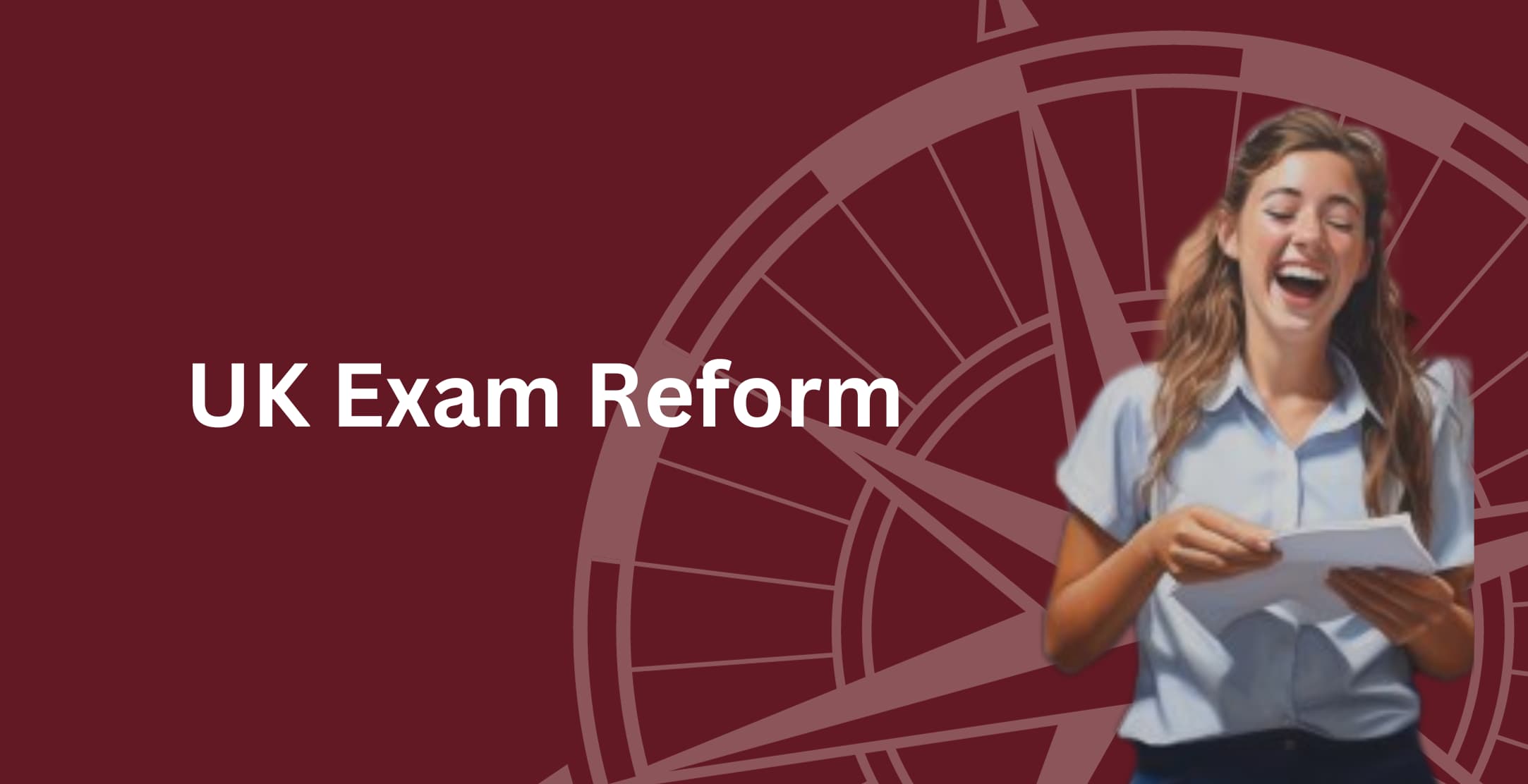By Adam Caller, Founder of Tutors International
In the wake of the recent publication of GCSE results in the UK, an article featured in the TES magazine has ignited fervent discussions about the need to reform the existing GCSE system, specifically in English and maths. A small group of professionals in the educational sector vigorously advocate for a “more humane qualification system”, a call spearheaded by Geoff Barton, the General Secretary of the Association of School and College Leaders. Whilst the sentiment behind this call is deeply appreciated, it seems to sidestep what is, in my evaluation, the core issue, mistaking the symptom for the ailment itself.
Before we venture further, it is essential to recall the primary reasons behind the implementation of GCSEs. These were established to replace the divisive system of O Levels and CSEs, which inadvertently cultivated a two-tier education ecosystem, segregating students based on perceived academic capabilities and limiting opportunities for many. The GCSEs emerged as a harmonising force, aiming to offer an egalitarian platform where students, regardless of their background or type of school, could demonstrate their aptitude and prowess.
This systemic shift significantly propelled social mobility in the United Kingdom. Adopting a more inclusive assessment approach granted students from disparate backgrounds a fair chance at manifesting their merit. Furthermore, it facilitated identifying and fostering talent across all societal spheres, thereby diluting the concentration of opportunities within a narrow demographic. The GCSEs have acted as an agent of equalisation, working tirelessly to eliminate the barriers that previously hindered numerous bright minds from realising their full potential and accessing avenues to upward social mobility.
However, a growing concern arose over time that the passing grade standards of GCSEs and, subsequently, A-levels were being eroded, an alteration purportedly aimed at reflecting higher passing rates. This led to a pervasive belief that the exams were becoming progressively easier, thereby undermining the initial goals of fostering meritocracy and equal opportunity. The introduction of the new grading scale - shifting from the alphabetical A*ABC to the numerical 9,8,7,6, etc., was not merely a cosmetic alteration. It was a concerted effort to recalibrate the assessment protocols and reintroduce a level of rigour analogous to the erstwhile O-levels. This transition, while seeking to elevate academic standards, also brought to the fore a consequential reality – that making exams more challenging could lead to fewer students passing.
Returning to the current discourse, addressing a pervasive misunderstanding surrounding the grading system of GCSEs in Maths and English is crucial. Contrary to popular belief, these are not based on a norm-referenced system but are criterion-referenced. It is a misconception that there is a mandatory fail rate "baked into the system" - a fallacy that seems to be, in part, driving the current calls for reform.
Professor Lee Elliot Major rightly describes the high failure rate as "a national scandal", but it is erroneous to attribute this to the rigour of the exams. These assessments are not designed to fail students; instead, they aim to measure the grasp of a set criterion expected at that study level. If we are to address this scandal adequately, we need to shift our focus towards enhancing the learning environment so that more students are equipped to meet and exceed these criteria.
In our experience at Tutors International, we have witnessed firsthand the boundless potential that lies within every student. We recently championed a student who climbed from the lower echelons of performance percentiles to securing the top grade nationwide at A-level. Whilst our private tutoring services are predominantly availed by ultra-high-net-worth families and select individuals in our mentorship programme, this story serves as a robust testament to the inherent capabilities that await unearthed in all students. It is a repudiation of the notion of a 'no hoper' in the context of GCSE maths or English.
Our student's triumph illustrates that with tailored guidance, support, and dedication, surpassing the perceived limitations and achieving remarkable academic heights is not only possible but a very tangible reality. Let us not undercut our students' potential with a diluted qualification; instead, let us uplift them to reach and perhaps even exceed the benchmarks set.
Furthermore, it's essential to understand that exams are not meant to be confidence-building exercises; they are designed to grade students based on criteria. We should strive to produce more winners, not handing out participation trophies that only dilute the actual value of these qualifications.
At this critical juncture, we mustn't allow the government or schools to claim a superficial victory by creating second-rate certificates of participation in Maths and English studies. Instead, we should hold them accountable for actual outcomes, demanding that they focus on facilitating genuine learning and comprehension, enabling more students to qualify genuinely, rather than providing them with a backdoor to a certificate that holds diminished value.
While the sentiment behind the calls for a more "humane qualification system" is understandable, it is somewhat misplaced. It is pivotal to acknowledge that academic achievement, although significant, isn't the solitary avenue to foster excellence in an individual. As we move forward, it becomes increasingly necessary to cultivate a system that not only cherishes academic brilliance but also recognises and nurtures other forms of talent, providing multifaceted avenues for success. A genuine reform should envisage an educational landscape where diverse talents and skills are acknowledged and encouraged, promoting a more inclusive and comprehensive approach to personal and professional development. Thus, let us strive to foster an environment of authentic learning where students can confidently meet and perhaps even surpass the standards set by the GCSEs, contributing positively and diversely to society's fabric.

